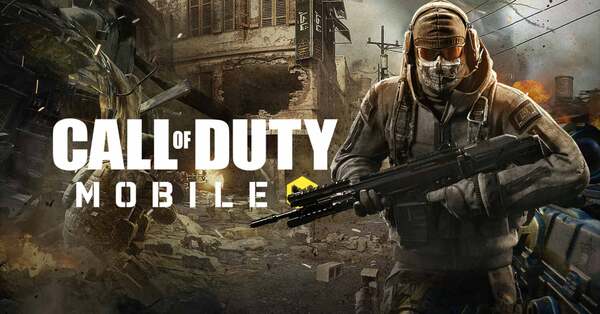
Call of Duty
All trademarks belong to their respective owners.
Advertisement
Popular Now
Introduction
The Call of Duty franchise has long been a household name in the gaming community, offering adrenaline-pumping action and competitive multiplayer experiences. However, a particular mechanic known as Skill-Based Matchmaking (SBMM) has sparked heated debates among players. SBMM aims to create balanced matches by pairing players with opponents of similar skill levels. While the concept seems fair on paper, its implementation in Call of Duty titles like Modern Warfare II and Warzone has drawn both praise and criticism. This article dives deep into the complexities of SBMM, examining its impact on gameplay, player satisfaction, and the broader gaming community.
What Is Skill-Based Matchmaking (SBMM)?
Skill-Based Matchmaking is an algorithm designed to evaluate player performance through metrics like kill-death ratio (K/D), win rates, and accuracy. The system then matches players against others of comparable skill. How It Works SBMM dynamically adjusts matchmaking pools, ensuring players face opponents that challenge but don’t overwhelm them. This approach contrasts with random matchmaking, which disregards skill entirely. Why It Exists The primary purpose of SBMM is to keep games engaging for a wide audience, particularly newer or less-skilled players. Developers argue that reducing the likelihood of one-sided matches fosters inclusivity and sustains player retention.The Good Side of SBMM
Many players support SBMM for the fairness it brings to multiplayer matches. Here’s why some see it as a net positive. Encouraging Balanced Gameplay SBMM prevents skilled players from dominating lobbies full of beginners, ensuring a competitive yet accessible experience for everyone. Boosting Player Retention By matching players with others at their skill level, newer players are less likely to feel discouraged. This increased accessibility is crucial for long-term player retention.The Downsides: Why Players Dislike SBMM
Despite its benefits, SBMM has become a lightning rod for criticism within the Call of Duty community. Hardcore players, in particular, have raised concerns. High Skill Ceilings: A Punishing Experience Players at the top of the skill spectrum face intense competition in every match. Instead of enjoying casual gameplay, they feel trapped in a never-ending tournament. Reduced Fun for Casual Play Many argue that SBMM removes the "pub-stomp" experience, where skilled players can dominate lobbies and unwind without the pressure of intense competition.
SBMM and the Loss of Variety
SBMM also impacts the variety of matches, with many players noticing repetitive patterns in their gaming sessions. Homogenized Gameplay Facing equally skilled opponents every match often leads to monotonous gameplay, lacking the unpredictable thrill of random matchmaking. Impact on Social Gaming SBMM complicates playing with friends of varying skill levels. When a less-skilled player joins a high-ranked friend, matches become unbalanced, frustrating both parties.SBMM in Call of Duty: A Case Study
The Call of Duty franchise has been a battleground for SBMM debates, especially with the release of Modern Warfare II and Warzone. How It Affects Public Matches In Call of Duty, public matches feel like ranked competitions due to strict SBMM implementation, leaving no room for casual players to experiment or enjoy a relaxed session. Community Reactions Forums like Reddit and social media platforms are rife with complaints from the Call of Duty player base. Many accuse the developers of prioritizing metrics over player enjoyment.SBMM and Content Creation
Streamers and content creators are among the most vocal critics of SBMM. Here’s how it affects their work. Challenges for Streamers Content creators thrive on entertaining gameplay, but SBMM often puts them in sweaty lobbies, reducing their ability to showcase flashy plays. Audience Implications As creators struggle to produce engaging content, their audiences might lose interest, impacting the broader Call of Duty community.
Developer Perspectives on SBMM
Game developers often defend SBMM, citing its benefits for player retention and game balance. Balancing New and Veteran Players For developers, the goal of SBMM is to cater to a diverse audience, ensuring everyone finds the game enjoyable. Economic Considerations Player retention is critical for monetization, especially in free-to-play models like Warzone. Balanced matches keep more players engaged, increasing revenue opportunities.Alternatives to SBMM
If SBMM is so divisive, are there better solutions? Some players and experts have proposed alternatives. Connection-Based Matchmaking Prioritizing low-latency connections over skill might enhance gameplay fluidity and reduce frustrations. Hybrid Systems A hybrid approach, combining SBMM with occasional random matchmaking, could strike a balance between fairness and fun.Future of SBMM in Gaming
SBMM is unlikely to disappear, but its implementation will evolve. Developers need to address player concerns while maintaining balance. Potential Improvements Adjusting SBMM to allow more variety and less rigidity could satisfy both casual and competitive players. The Broader Trend As SBMM becomes more common in modern games, understanding its nuances will be critical for fostering community goodwill.
















